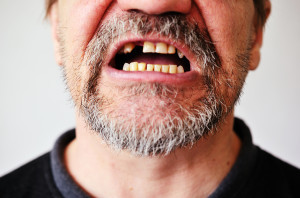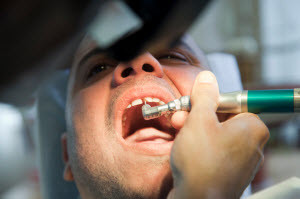 Experiencing a chipped or broken tooth can be scary, but with the right care and knowledge your emergency dental repair could be successful. A professional cosmetic dentist should have years of experience in dealing with this common problem. They are dedicated to helping you reduce pain and aid the recovery process after any kind of trauma occurs to your mouth or teeth. The dentist will provide an accurate assessment of what needs doing, whilst ensuring that minimal damage is done in order to achieve maximum results for each case! Here is how a dentist will treat a tooth that has been chipped or completely knocked out.
Experiencing a chipped or broken tooth can be scary, but with the right care and knowledge your emergency dental repair could be successful. A professional cosmetic dentist should have years of experience in dealing with this common problem. They are dedicated to helping you reduce pain and aid the recovery process after any kind of trauma occurs to your mouth or teeth. The dentist will provide an accurate assessment of what needs doing, whilst ensuring that minimal damage is done in order to achieve maximum results for each case! Here is how a dentist will treat a tooth that has been chipped or completely knocked out.
How Does A Dentist Treat A Tooth That Has Been Chipped Or Completely Knocked Out?
When dealing with damaged teeth due to chipping or cracking from daily wear and tear or accidental trauma over time—restoration becomes a key factor when considering oral health maintenance. It takes quality care from experienced professionals combined with modern technology advances to provide successful solutions making sure each client leaves happy after getting desired results! From Dental Bonding utilizing composite resin reshaping techniques; through custom fitted Veneer porcelain shells covering pitting & cracks surfaces; up until Crown installment being the ultimate resort against highly impaired components.
With so many options available for restoring chipped and broken teeth, a professional dentistry team can help you determine which one is the best solution. For minor chips and cracks, dental bonding or veneers offer an effective way to reinstate your tooth’s appearance. However, if there are more severe issues involved with damage then crowns may be necessary in order to restore functionality as well as comfort back into the patient’s mouth. Whatever treatment route is chosen by both you and your dentist should take into account factors such as the location of the damage on/in the tooth (surface vs under enamel), the severity of chip(s) or crack(s), price point per procedure, etc. In any case, it is important that patients discuss all possible restoration treatments thoroughly before deciding upon any type of intervention in order to get maximum value out of their visits to the clinic room!
You should receive the best possible care for your chipped or cracked tooth. An experienced endodontist can provide relief from pain and prevent potential problems with an individualized treatment plan specific to your needs. With accurate diagnosis and safe procedures, they will ensure lasting results so that you can enjoy years of comfortable chewing without worry or stress about future dental complications.




